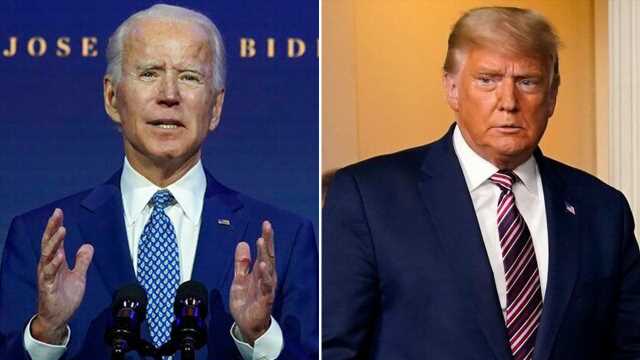Faction of GOP senators plan to challenge Electoral College results
Rep. Jim Jordan, R-Ohio, joins ‘Fox News @ Night’ to discuss the planned maneuver by lawmakers
Wednesday’s joint session of Congress, to formally certify last month’s Electoral College vote in the 2020 presidential election, is normally a ceremonial event.
But this year the quadrennial gathering that’s mandated by the U.S. Constitution is anything but a mere formality – and is expected to be much longer and infinitely more contentious than usual.
Here's how all the action should play out on Wednesday.
Under federal law, Congress is mandated to meet on Jan. 6 in a joint session to certify the Electoral College vote. The session, which will begin at 1pm ET, will be presided over by Vice President Mike Pence, in his role as president of the Senate. He will eventually declare an election winner when the session concludes.
The sealed certificates from all 50 states and the District of Columbia – which contain a record of their Electoral College vote – will be brought into the House chamber in mahogany boxes. Bipartisan representatives from both chambers will open the certificates, read the results out loud, and give an official count.
After the certificate from a state is read out loud in the chamber, any member of Congress can stand up and object to that state’s Electoral College vote on any grounds. But the presiding officer – which will be Pence – cannot hear the objection unless it is in writing and signed by at least one House member and one Senate member.
BATTLE LINES DRAWN IN GOP OVER TRUMP'S PUSH TO OVERTURN PRESIDENTIAL ELECTION RESULTS
If there is a joint request – which appears all but certain on Wednesday – the joint session is suspended and both houses of Congress go into separate sessions to debate and vote on those objections. For an objection to succeed, it must be upheld by a majority vote in each chamber, which is extremely unlikely. If one or both houses of Congress vote down the objections, the original electoral vote count is sustained.
The last time this happened - albeit on a much smaller scale – was in January 2005, following President George W. Bush's edging of then-Democratic Sen. John Kerry of Massachusetts in the Electoral College vote. The election came down to Ohio, which Bush narrowly won.
Two Democrats – Rep. Stephanie Tubbs Jones of Ohio and Sen. Barbara Boxer of California – objected to Ohio’s electoral votes, claiming there were irregularities that led to voters being disenfranchised. Both chambers debated the objection and then rejected it.
One thing to watch on Wednesday is attendence. Some members of Congress will likely be absent, and lawmakers cannot vote by proxy.
Source: Read Full Article

